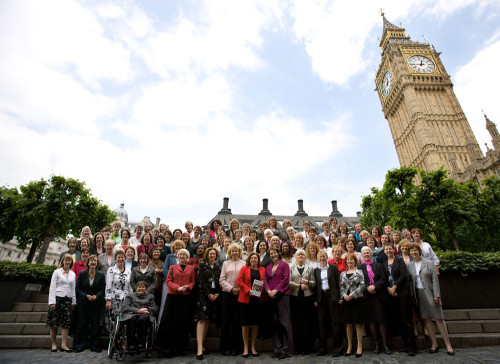Whether rightly or wrongly, women are responsible for the majority of childcare. Despite this, I refuse to accept two things.
Firstly, that childcare is a woman’s issue, and secondly (this annoys me more), that women don’t care about issues often seen as ‘owned’ by men: infrastructure, defence and astonishingly, the economy.

I’m 25, and I don’t have any children but I’d be lying if I said I hadn’t considered this for my future (FYI Mum, I’m planning to buy a house near you for this reason). I have lots of older friends trying to manage careers with being parents. Now, they’re on pretty decent salaries but they say childcare still takes up about half their pay. The cost benefit would denote that it’s not financially beneficial for one person to stay at home as a full-time parent and look after the children. Aside from the fact that this is bad for the economy, most women I know in these situations don’t want to stay at home. The alternative is an expensive lifestyle of balancing potentially long hours and minimal time with your children for a high cost so that both parents can have a career.
Within this debate, it’s assumed that childcare is a ‘woman’s issue’. Meanwhile, I’ve heard HS2, Trident and airport expansion described as boys’ toys. Not only does this hem women into a domestic policy debate (‘women can contribute on health and education but what do they know about the defence industry?’) but it is also misleading. These issues impact on women as much as men and we consequently should have as equal a say. HS2 Ltd aim to get more women – currently living in employment disadvantage in the midlands – working in construction through new jobs.
A poor economy means a disproportionate effect on income poverty and deprivation for women. And thousands of women would be impacted by the jobs that would be lost if a misguided Government didn’t replace, like for like, the manufacturing supply chain industry that spans from Barrow-in-Furness to Derby.
And although there has been promising moves in terms of gender representation in Parliament, women are often left out of such debates. There are a number of women in Parliament, particularly from the 2010 intake, who are not only qualified to contribute to these debates, but who are also articulate and talented – think Alison McGovern, Gemma Doyle and Liz Kendall, to name a few. But I don’t often see being called up on the floor of Parliament or in the media to discuss these issues.
I’d like to see significant changes in our Party, not only from the leadership – 50% of the Shadow Cabinet being women only means so much if they’re constantly wheeled out to talk about childcare and primary schools – but from our women too. Men won’t proactively open the doors for us to be heard unless we ask and then fight for it ourselves.




More from LabourList
Letters to the Editor – week ending 1 March 2026
‘I spent years telling workers the law couldn’t help them – that has changed’
Josh Simons resigns as Cabinet Office minister amid investigation